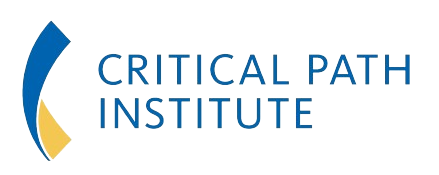
Major pharma companies sign up to groundbreaking Parkinson’s consortium
Seven of the world’s largest pharmaceutical companies have signed up to a groundbreaking consortium aimed at accelerating the development of safe and effective therapies for Parkinson’s.
The Critical Path for Parkinson’s consortium will bring together leading academics; industry members AbbVie, AstraZeneca, Biogen, Eli Lilly and Company, Merck Sharp and Dohme (known as Merck & Co. Inc. in the United States and Canada), Pfizer, and UCB; and founders the Critical Path Institute (C-Path) and Parkinson’s UK, to share data, expertise and resources to promote and develop new treatments for Parkinson’s.
The consortium, which was launched in October 2015, was formed by Parkinson’s UK and C-Path to increase investment into research and development of new Parkinson’s treatments.
Dr Arthur Roach, Director of Research at Parkinson’s UK, the principal funder of the consortium, says:
“Despite significant advances in our understanding of the genetics, biochemistry and pathology of Parkinson’s, the development of new treatments has not kept pace. New treatments are desperately needed to deal with the devastating effects of this progressive condition.
“Investing in clinical trials for brain disorders currently carries a high cost and high risk of failure. As the world’s largest patient-led Parkinson’s charity, we know that people living with conditions such as Parkinson’s have often been disappointed when drugs that showed significant promise early on failed in late stage testing.
“We see the consortium as a crucial part of strategies to develop new treatments that work at the earliest stage of the condition, with the goal of slowing its progression, and eventually finding a cure.”
Parkinson’s affects 127,000 people in the United Kingdom, and approximately 7 million people worldwide. In 2012/13, the National Health Service (NHS) spent more than £212 million on caring for people with Parkinson’s in England (1), with the cost of the condition in the United States approximately US$25 billion per year (2). With the baby boomer generation becoming older, the number of people with neurodegenerative conditions, including Parkinson’s, is likely to increase and will become one of the biggest issues faced by healthcare.
The International Federation of Pharmaceutical Manufacturers & Associations (IFPMA) estimated that the cost of developing a single drug was US$1.3 billion, rising from US$138 million in 1978 (3), a tenfold increase attributed to a multiplicity of factors faced by drug research.
Diane Stephenson, PhD, Executive Director, Critical Path for Parkinson’s consortium, C- Path, says:
“With the increase in the costs of getting a drug to market, the design of a clinical trial is a crucial part of a drug’s success. There is a strong realisation from the industry that collaboration among industry, academia, and worldwide regulatory agencies, along with the sharing of data, has the potential to create a more efficient development process. This recognition is evidenced by the fast pace at which members of this new consortium have joined.”
Parkinson’s UK has committed over £1million to the Critical Path for Parkinson’s consortium.
For more information, and to donate to Parkinson’s UK research and the work with the Critical Path Institute, visit http://parkinsons.org.uk/research
Media enquiries
Please contact: Hanna Kilpin, Senior Media & PR Officer on 020 7963 9311 or email: hkilpin@parkinsons.org.uk
Out of hours: 07961 460248 Notes to editors
- Parkinson’s and the NHS in England: the cost of poor care. Parkinson’s UK. October 2013.
- Statistics on Parkinson’s. Parkinson’s Disease Foundation.
- The Pharmaceutical Industry and Global Health: Facts and Figures 2015.
International Federation of Pharmaceutical Manufacturers & Associations.
About Parkinson’s UK
Every hour, someone in the UK is told they have Parkinson’s.
It affects 127,000 people in the UK – which is around one in 500 of the population.
Parkinson’s is a degenerative neurological condition, for which there currently is no cure. The main symptoms of the condition are tremor, slowness of movement and rigidity.
Parkinson’s UK is the UK’s leading charity supporting those with the condition. Its mission is to find a cure and improve life for everyone affected by Parkinson’s through cutting edge research, information, support and campaigning.
For advice, information and support, visit http://www.parkinsons.org.uk or call our free, confidential helpline on 0808 800 0303.



